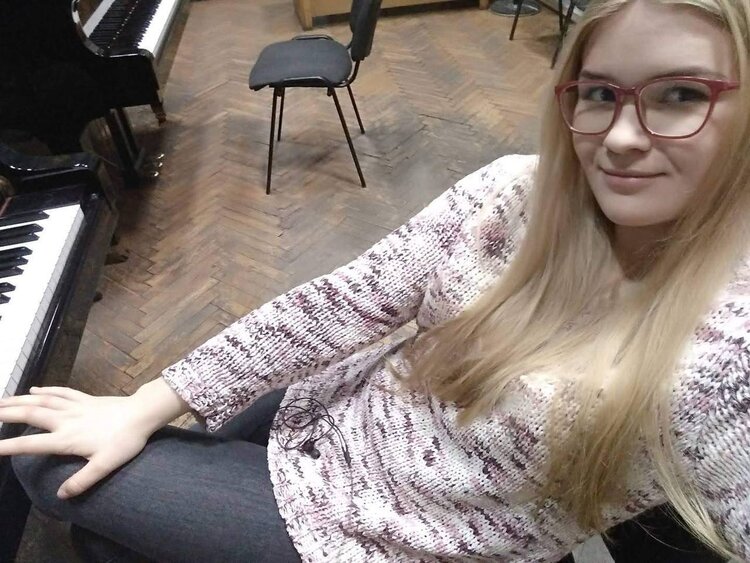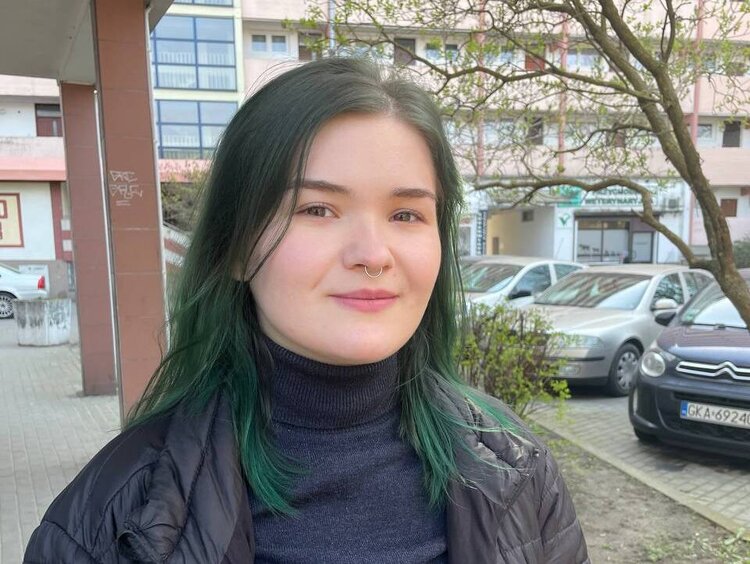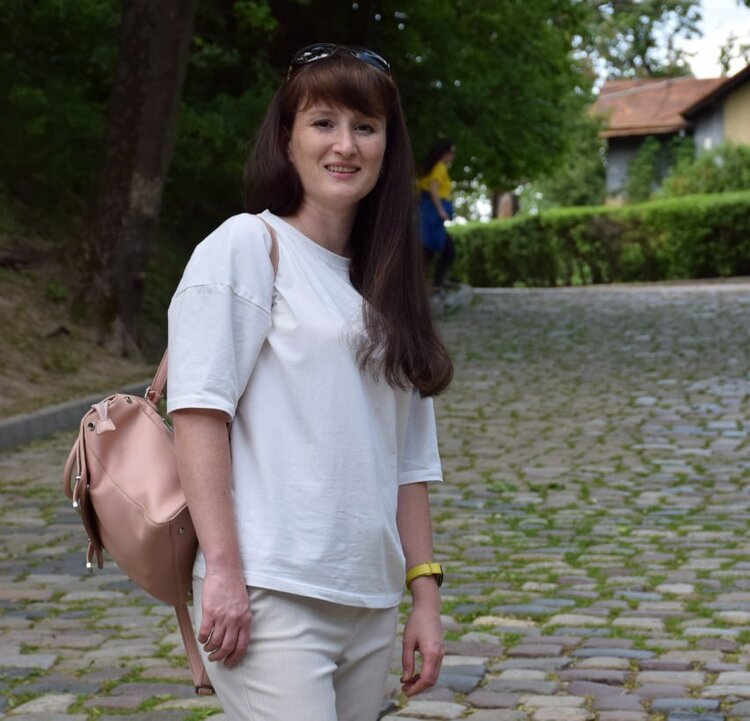Switching to IT: Three stories of female developers who went through dozens of interviews and rejections before their first offers
Why they left their old jobs and whether or not it easy was to find a new one

Today, the Ukrainian IT industry employs almost 309,000 specialists. Before the war, they were in a shortage. According to statistics from Djinni, a platform for the anonymous search for programmers, demand exceeded supply by almost a third. "Before the full-scale war, the market was overheated, students were sending 30 CVs, they had three interviews with recruiters, and they could get an offer," says Anna Apostol, the Founder of Mate academy, a programming school. Today, the IT market 'belongs' to the employer – many companies have reduced the number of open positions or have stopped recruiting, and some have even had to cut staff.
However, for many Ukrainians, the IT industry has become a 'lifeline' during the war. Mind has collected three stories of switchers – people who changed their profession and entered IT. Were they afraid to start a completely new path? What did they expect, what difficulties did they face, and how long did it take from the first application to the offer? The former concertmaster, confectioner, and economist who had become developers told the outlet about it and many other things.
Kateryna Khon, 25, Frontend developer

Music has been a part of Kateryna's life for almost 20 years. At the age of 5, she was sent to a music school. At the age of 7, the girl moved to a specialised music school, followed by the Ukrainian National Tchaikovsky Academy of Music. Her post-graduation work was also related to music – tutoring and teaching at school.
Thoughts about IT came about inconsistently. The first ones began to emerge in the 10th grade. However, a dialogue about IT among students studying to be musicians was obviously not promising. "I've been in music all my life, my parents are musicians. And it seemed like a mistake to change something and go against everyone who had hopes for you. That's why I decided to try to work in my field first, and then make a decision," says Kateryna.
However, the work was never satisfying. The future developer was working as a concertmaster at a school. In fact, her task was to play all the time while the teacher was teaching a lesson and the children were dancing or singing. She had to play the same pieces all the time, which over time gave her less and less joy. It's like reading the same book every day – you lose interest.
"I took a break for six months to 'clear my mind' and try to live without music. I focused on physical activity and went dancing. And as soon as I felt ready to move on, I saw an advert for a programming school on TikTok, which seemed to bring me back to all those past thoughts where IT was something that attracted me," Kateryna recalls.
Her first full-fledged introduction to programming was during a basic course at Mate academy. The start of the course coincided with the beginning of the invasion. Programming allowed me to switch gears. "It distracted me. I could sit at my laptop and learn to write code. Even running to the basement to hide," she says.

She decided to complete the course and then make a decision: Is IT just a whim, or is it something that interests her? "Besides, the course is free, so I have nothing to lose. I chose Frontend from the entire list of courses available. It's great because you can immediately see the result of what you write. It's a very useful thing in terms of self-motivation. I immediately rejected UI/UX design because I was not interested in it at all," Kateryna adds. She studied from morning until late at night. "No matter how difficult it was, I reassured myself that it was hard now, but it would get easier," she says
She received her first job offer on the first day of her search. Kateryna applied for the vacancy and completed the test. She was offered a trainee position. "However, from the first days, I was not impressed with the atmosphere in the company, there was no feedback. So, after two and a half weeks, I returned to the ranks of jobseekers. Three months passed, during which I sent more than 200 applications and had seven interviews. And finally, an offer from ITsquad found me," she recalls.
Kateryna wants to continue developing in IT. "I even have an idea to implement a project one day that will combine music and IT experience – to launch a platform that will help people learn to play the piano," she says
Maria Gyria, 25, Full-stack developer

Before IT, Maria had been involved in the confectionery business: she worked as a confectioner, baker, and was baking cakes to order. She first thought about changing her niche after experiencing emotional burnout at her last job. But then, it was scary to start learning a new profession, so she started her own business and opened a confectionery shop.
The full-scale war has become a powerful incentive to change life. "Sometimes I thought I would never stop making cakes. It was very dangerous in my city, Kharkiv, so we decided to leave. In the first days of the war, I realised that I was not going to return to cakes. Firstly, I just couldn't make them emotionally. Secondly, I didn't know whether I would return to my hometown to resume my own business. I realised that I would not be able to recreate the start of a small business the second time," Maria recalls.
In April 2022, she felt inspired. She remembered that she had the potential for IT and hadn't realised it. At that moment, there were a lot of announcements on telegram channels about free IT courses for Ukrainians. She decided this was her chance. At first, Maria combined her studies with cake making, but there were few orders. "I went to Mate academy. It was sometimes difficult, especially when we studied during blackouts," she recalls.

The job search was interesting only for the first week. Maria searched for vacancies through Mate's internal platform with all the jobs on the market, and wrote to recruiters on Telegram, LinkedIn, and WhatsApp. "In general, I didn't get much feedback from recruiters. I had only five interviews out of more than 350 CVs sent. At the first one, everything was great. I could already imagine working for this company, but I got a call the same evening: ‘Unfortunately, we have already filled this position.’ A month and a half of searching later, I finally got a job at Codempire," says the developer.
Now, according to Maria, she has got used to the idea that she will not connect her life with the confectionery business. "I`m not as keen as before. My mind is already in IT, and there is no desire to invest in promoting cakes and physically working. When I started working, I stopped working with cakes completely," says Maria
Polina Sukhorukova, 37, Frontend developer

Polina has worked for the last 10 years at the Kharkiv Regional Department of the State Fund for Support of Youth Housing Construction. She started as an economist and was promoted to deputy head of the Credit and Advisory Department. At the fund, she got acquainted with web development: she filled the website with content. In late 2018, Polina took her first offline IT courses at Source IT. However, due to the pandemic, her passion for IT took a back seat as she had to adapt to the new realities of life and continue working.
It was the full-scale war that finally convinced her to go into IT. "On 24 February, my first thought was how to save my children, and the second was how to live on. For some reason, I was sure that I would not return to the Fund. So I decided that I needed to develop my passion for front-end development," Polina recalls.
During the war, the Fund continued to work, but there was much less work to do. The staff worked with existing clients. In her spare time, Polina studied on her own. "It was sad to part with the team. However, with the full-scale war, the Fund was reorganised, which resulted in the liquidation of regional offices and two-thirds of the staff being laid off. I decided not to stay and take someone else's place because I already knew that I wanted to go into the IT sector. Thus, people were given the opportunity to keep their jobs," she recalls.
After reading thousands of reviews of IT courses, Polina chose Mate. "The most important criterion was the possibility of free training before employment and payment only when I start earning a salary. It was a convincing argument for me that the school would be interested in helping me find a job in IT," says Polina.

At first, she combined her studies with her previous job. "It was hard, but I tried to manage. It took me 12 hours a day to study, but it was because I wanted to hand in my homework on time. I realised that I was primarily interested in the result. However, I tried to rest on weekends," says Polina.
She was lucky. It took less than two weeks from applying for her first job to signing the offer. In total, she applied for almost 100 vacancies during this time. However, she got a job at the company where she had sent her CV on the first day of job search. The selection stages included an English test, a video business card in English, a test task to develop a landing page, and an interview (mostly technical). It is how she accepted the offer from the outstaffing company Remotemployees.
"By the way, an interesting fact: I applied for this job in two ways. The first was through a job search site. Second, I wrote to the company's recruiter on LinkedIn. And it was the direct contact on LinkedIn, which later grew into communication on Telegram, that worked," says Polina.
If you have read this article to the end, we hope that means it was useful for you.
We work to ensure that our journalistic and analytical work is of high quality, and we strive to perform it as competently as possible. This also requires financial independence. Support us for only UAH 196 per month.
Become a Mind subscriber for just USD 5 per month and support the development of independent business journalism!
You can unsubscribe at any time in your LIQPAY account or by sending us an email: [email protected]


